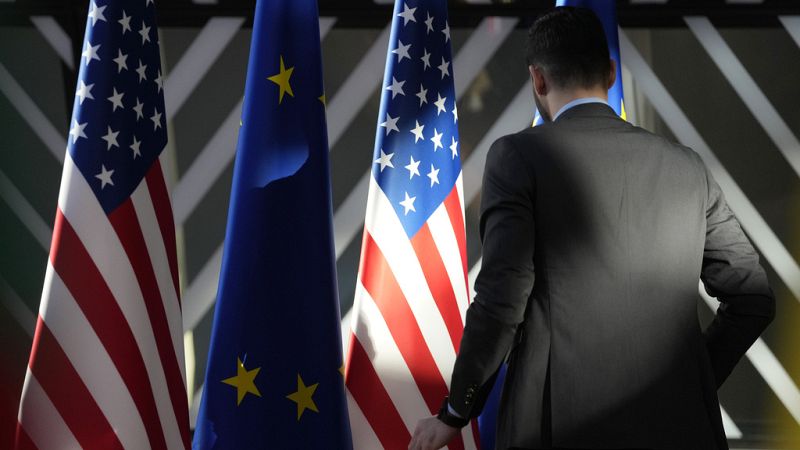EU member states back von der Leyen's controversial trade deal terms under pressure from Trump

The EU member states agreed on Friday to cut tariffs on US imports as outlined in a controversial trade deal agreed last summer between the European Commission and the Trump administration to the detriment of European goods.
The move comes as US trade representatives urge EU capitals to fast-track the implementation of the deal which foresees the EU dropping tariffs to zero on most US industrial goods. A US delegation visited Brussels this week for talks.
The idea of adding a so-called “sunset clause” - a mechanism that would end the tariff concessions after a period of five years if the deal is not renewed - sparked a debate among EU countries but did not go ahead, signalling that member states do not want to antagonise Trump.
The EU-US trade agreement was concluded in July after months of tensions after US President Donald Trump imposed sweeping tariffs on partners worldwide in what he called "Liberation Day" for America. Under the deal, the EU will pay 15% tariffs on its exports to the US, while reducing its own tariffs on most US industrial products to zero.
No 'sunset clause' yet, but the Parliament could fight it
The deal has been widely criticised as a humiliation for Europe, although the Commission has defended it since arguing that it was the best possible outcome in the face of Trump’s aggressive trade stance. The alternative, Brussels argued, would have been worse.
Still, on Friday, the 27 backed the Commission's much-maligned deal with a majority.
They also approved a clause allowing the Commission to suspend the deal if the US fails to implement it, as well as a safeguard mechanism enabling the Commission to temporarily halt the agreement if US imports surge and disrupt the European single market as a result of tariff concessions.
Member states also debated the introduction of a “sunset clause” that would permanently end the tariff reductions after five years if the deal is not renewed – an idea they expect the European Parliament to champion in upcoming talks.
Both institutions must agree on a common text by next spring to finalise the tariff cuts. According to an EU diplomat, most member states could accept adding the clause, but Germany opposes it as it fears retaliation.
The head of the Parliament’s trade committee, German MEP Bernd Lange (S&D), has already included the idea of a sunset clause in his report on the deal’s implementation which will serve as the basis for the European Parliament's debate.
Inside the Commission, officials hope the Council and Parliament will refrain from unravelling the agreement negotiated with Washington on the basis that it could trigger another round of escalation and amplify a trade war.
Today

